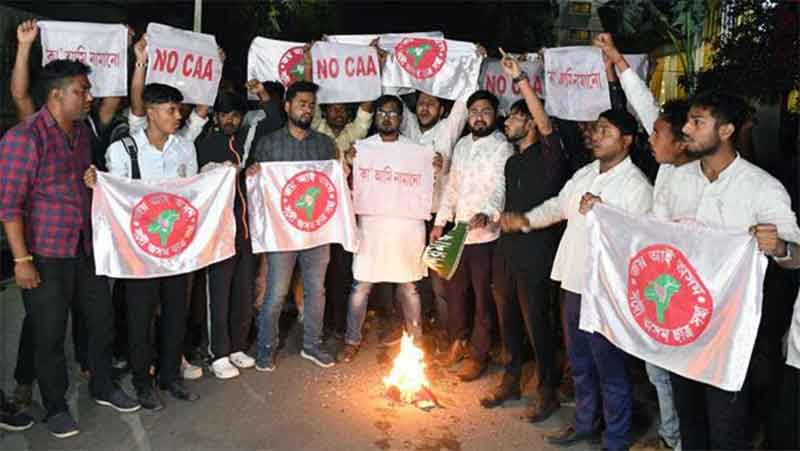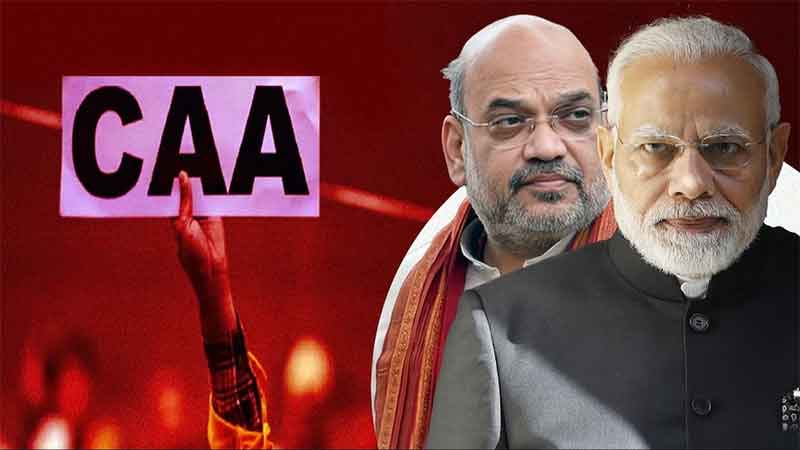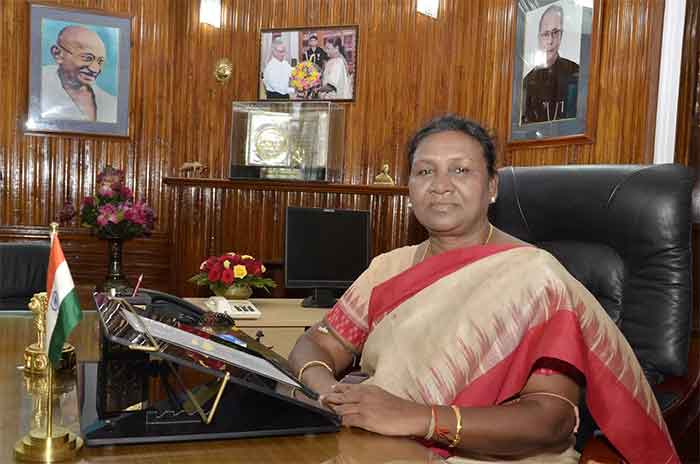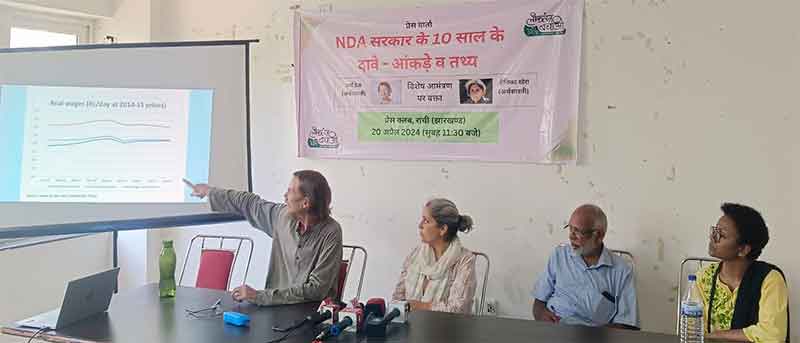A large number of Indians – most of them Dalits, Adivasis and the poor – will lose their citizenship under CAA only for a few thousand refugees from Pakistan, Bangladesh and Afghanistan to be accommodated, writes Vivek Sakpal
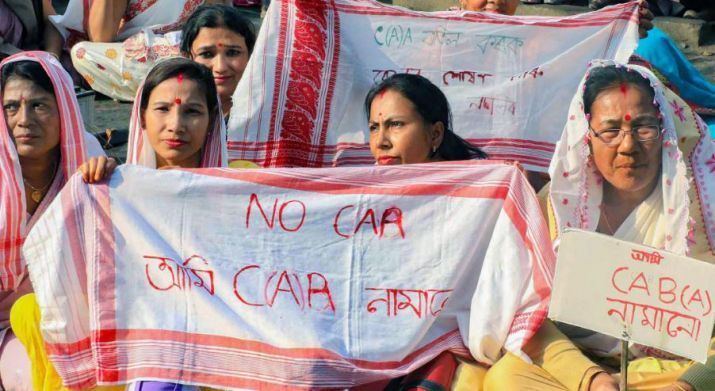
Many of the long-serving and soon-to-retire government employees have their birthdays in June. Most of these, in Maharashtra, have a common date of birth, 1st June. This is irrespective of their caste and religion. Their reason is pretty simple. They were born in villages – where exact dates of birth used to go unrecorded and unremembered – and during their school admission, a date of birth was entered to suit the academic calendar.
While the Indian state grants citizenship by birth, this whole idea stands to be demolished soon. The Aadhaar card, despite the unique identity number clearly mentioned on it, shall not be used as proof of citizenship. The ration card (fair-price shop card) is to be only used to purchase essentials and not a proof of citizenship as commonly understood. The voter ID card issued by the Election Commission of India, birth certificate and passport, were until now supposed to be documents that could serve as proof of citizenship. Based on social-media chatter and statements made by Home Minister Amit Shah, this stands to be corrected. What is a valid proof of citizenship is not yet clarified and which documents stand to prove citizenship are not yet mentioned clearly.
All this comes as a surprise to many, as to why suddenly the government is keen on counting its “citizens” and making a list. While the whole idea may be old and noble in principle, the execution makes one wonder. There are questions about the motive and timing. But we should also keep in mind that this is going to incur a massive budgetary expense, while the priorities in India – the nation with the second largest population – are education, health and economic upliftment.
What would be achieved through this? Is it worth such a huge investment? This discussion of citizenship has its genesis in the Citizenship Act, which has undergone several amendments, most recently being in December 2019. Under this latest amendment, only Hindu, Buddhist, Jain, Parsi or Christian refugees – whom the government considers persecuted minorities – from Afghanistan, Bangladesh and Pakistan will be automatically considered for citizenship.
Dalit writer and activist Bhanwar Meghwanshi remarks, “I believe that we should always keep the doors of our country open for the oppressed on humanitarian grounds – be it anyone from anywhere. It shouldn’t be restricted on religious grounds.”
Finance Minister Nirmala Sitharaman says 2838 Pakistanis, 914 Afghans, 172 Bangladeshis were given Indian citizenship in the last 6 years.[i] These included people from all religions and were not necessarily religiously persecuted in their country. This was prior to the CAA being passed in Parliament. That comes to 654 citizenships per year.
While India adds roughly 13,775,474 a year to its population[ii], and 532,687 migrate out of India, these 600-odd refugees being granted citizenship should have negligible impact on governance or law and order. The number of people sneaking into India and seeking asylum has not been disclosed by any ministry. There is no official number of illegal immigrants from other nations. The number of these illegal immigrants, who are usually termed terrorist or potential terrorist, varies in speech to speech and speaker to speaker depending on the crowd cheer and election fever.
Social entrepreneur Jeroninio Almeida is for accommodating all migrants because they are citizens of the world. “They need shelter and protection; they need a country where they belong. Excluding any community does not match the Indian ethos,” says Almeida.
Under the Supreme Court’s supervision, a National Register of Citizens for Assam (population around 30 million) was prepared, which led to roughly 19,00,000 being excluded from the list. The list included government officials, people’s representatives and even army personnel and their families. This is roughly 0.06 per cent of the population of Assam. If similar exercise happens all over the nation it would not be wrong to estimate that around 80 million will fall in that list.
While most of these would be Hindu, a large section of them would be Dalits and Adivasi, of whom documentation is weak. Many internal migrants will also suffer. There are many who lose their documents in floods, earthquakes and riots and even migration in search for livelihoods. The poorest would be the hardest hit.
In Assam, the documents that would serve as proof of citizenship were electoral rolls containing names of self or ancestors, land records, residential certificates preceding a date, birth certificates and school/college certificates. They were used to establish a link between the documents of ancestors and the claimant.
This is for the educated and well-off people. What about the poorest of the poor, the construction workers, farm labourers, drivers who are constantly on the move with families for reasons of employment? What about the people who never have had land or a house? Or the Adivasi who has community land and no legal document to prove ownership of land?
Bringing a legislation to grant asylum to a few thousand refugees in a year is problematic in itself. While the Register of Citizens may sound good, is it needed? Is the huge cost justified? While people already have PAN, Aadhaar, voter ID, passport, ration card, birth certificate, all issued by the government, the need for one more ID card sounds irrational and makes one suspicious of malafide intentions behind it.
The administrative expense alone for preparing NRC in Assam was above Rs 300 per person. The estimate for the entire nation would be more than Rs 390 billion. Purely from an economic point of view, this cost cannot be justified. The same money could be spent on various other government programmes. The so-called illegal immigrants could also benefit on humanitarian grounds without the governance of the nation being affected.
Now the general perception is that, unless proven, one is not a citizen. This means all who have not yet been scrutinized (or listed) on the basis of the NRC exercise, are not citizens. Only when their names figure on the NRC, they shall be called citizens.
How is the government addressing this issue? When will the list of documents needed to prove citizenship be released? Why is not a birth certificate considered proof of citizenship? Why are the passport and voter ID card not valid documents of citizenship? What about those who work in other countries with an Indian passport? Are they already nationless? Will there be NRC centres in those countries where they would be able to register themselves as Indian citizens?
This has led to protests across the nation. Shaheen Bagh in Delhi, Ghanta Chowk in Lucknow, Nagpada in Mumbai are some places where women have taken the lead in unique sit-in protests. These untiring women have shown us new ways of celebrating democracy, filled with creative slogans and posters.The strength of the protests is in the fact that the protestors have been from across religions and have been self-motivated.
This initiative to determine who among the 1.30 billion people of India are deserving citizens and who are not is an open invitation to a new crisis.
Copy-editing: Goldy/Anil
[i] ‘2838 Pakistanis, 914 Afghans, 172 Bangladeshis given Indian citizenship in last 6 years, says Nirmala Sitharaman’ https://timesofindia.indiatimes.com/india/2838-pakistanis-914-afghans-172-bangladeshis-given-indian-citizenship-in-last-6-years-says-nirmala-sitharaman/articleshow/73374260.cms
[ii] https://www.worldometers.info/world-population/india-population/
Vivek Sakpal is a publishing-cum-IT consultant and managing editor of the website People’s Voice
Originally published by ForwardPress
SIGN UP FOR COUNTERCURRENTS DAILY NEWS LETTER


